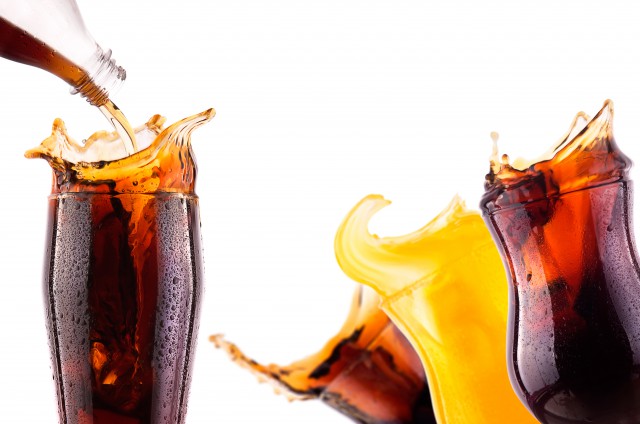Consumers in the US are more likely to say they actively try to avoid including soda or pop in their diet than 14 other foods, including sugar and fat, finds Gallup.
At least six in 10 US adults say they are trying to steer clear of these drinks, regardless of whether they are diet or regular.
They are most likely to say they actively try to include fruits and vegetables in their diet.
Gallup asked 1,009 consumers in the US about the foods they try to include or avoid in their diet as part of its annual Consumption Habits poll in July 2015.
Previous Gallup reports have focused on Americans’ avoidance or inclusion of gluten-free foods and salt or fat.
They appear to be aware of the health benefits of fruits and vegetables, with at least nine in 10 saying they actively try to include each in their diet.
At least three in four respondents also say they try to include chicken and fish in their diet, meats that nutrition experts often recommend to help with heart health, in lieu of beef and other red meat, which nevertheless, 63% of Americans still actively try to include in their diet.
In 2015, there are only three types of food that 50% or more of Americans say they actively try to avoid — diet and regular soda and sugar.
Historically, Gallup has asked Americans generally about their intake of “soda or pop”, but in this year’s poll, it asked half of those surveyed about “diet soda or pop” and asked the other half about “regular soda or pop.”
It appears that respondents do not distinguish between the two, despite the higher sugar and calorie content in regular soda than in diet soda.
The results were nearly identical, with 61% reporting they try to avoid regular soda and 62% diet soda.
Regardless of question wording, the respondents’ attitudes toward including soda in their diet are unchanged since last year.
But Americans are far more likely now (61%) than in 2002 (41%) to say they are trying to avoid soda.
Likewise, the percentage of respondents who actively include soda in their diet has dropped since 2002, although not as drastically, from 36% to 22%.
Dietary habits of drinking soda
Consumers in the US have also become more likely to report avoiding sugar, from 43% in 2002 to 50% in 2015 — although this change is less pronounced than the change in attitudes about soda.
Their likelihood to either include or avoid fruits, vegetables, chicken, fish or red meat has been largely stable since 2002.
Survey respondents appear to be aware of the health benefits of eating fruits, vegetables and lean meats such as chicken and fish, with the vast majority of Americans reporting they try to include them in their diet.
However, they do not always achieve this goal, with 57.7% reporting they had five or more servings of fruits and vegetables at least four days of the last week in 2013.
A majority of respondents say they try to avoid drinking soda, regardless of whether it is regular or diet.
Consumers may say they are trying to avoid soda because of the high-calorie and high-sugar content in regular soda, or the fears of artificial sweeteners used in diet soda.
While some doctors agree that a can or two of soda a day is not harmful to one’s health, most advise that lower-calorie and natural beverages, such as skim milk or water, may be healthier choices.
Story by Rebecca Riffkin from Gallup










